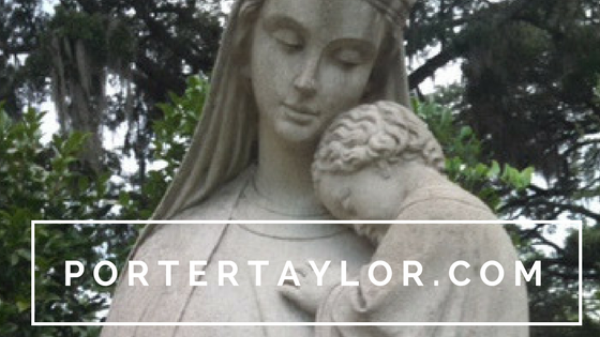Amid the drama of this week—the Inauguration, the Women’s March, the Hearings---amid all of that, I gained a different perspective. I don’t mean to diminish the importance of any of the above, but our headlines are only a piece of what is going on in the world. Moreover, often what in the long run turns out to be important happens in the corners. This week I found myself thinking about Marge Piercy’s wonderful poem and an article in The Economist about Vera Rubin (I know—random).
Frist the poem:
The Seven of Pentacles
by Marge Piercy
Under a sky the color of pea soup
she is looking at her work growing away there
actively, thickly like grapevines or pole beans
as things grow in the real world, slowly enough.
If you tend them properly, if you mulch, if you water,
if you provide birds that eat insects a home and winter food,
if the sun shines and you pick off caterpillars,
if the praying mantis comes and the ladybugs and the bees,
then the plants flourish, but at their own internal clock.
Connections are made slowly, sometimes they grow underground.
You cannot tell always by looking what is happening.
More than half the tree is spread out in the soil under your feet.
Penetrate quietly as the earthworm that blows no trumpet.
Fight persistently as the creeper that brings down the tree.
Spread like the squash plant that overruns the garden.
Gnaw in the dark and use the sun to make sugar.
Weave real connections, create real nodes, build real houses.
Live a life you can endure: Make love that is loving.
Keep tangling and interweaving and taking more in,
a thicket and bramble wilderness to the outside but to us
interconnected with rabbit runs and burrows and lairs.
Live as if you liked yourself, and it may happen:
reach out, keep reaching out, keep bringing in.
This is how we are going to live for a long time: not always,
for every gardener knows that after the digging, after the planting,
after the long season of tending and growth, the harvest comes.
Whatever we think about the events of the week in Washington, we have this one life to live which requires that we make connections that endure; that we grow gardens that feed us and the world; that we be part of bringing God’s kingdom of peace, justice, and mercy on earth as in heaven. This is a life-long project and often the growth is underground and doesn’t make headlines.
Which brings me to Vera Rubin. Born with a brilliant scientific mind, In the 1940’s she was told in high school to “stay away from science.” At Vassar, she was the only astronomy major to graduate her year. She thought about a Ph.D. at Princeton but woman were not allowed into the program until 1975. Married at 19, she gave up a place in graduate school at Harvard and instead followed her husband and took night classes at Georgetown University for her doctoral degree.
When she visited Palomar Observatory in 1965, the home of the world’s largest telescope, there were no women’s bathrooms. Vera Rubin stuck a handmade skirt sign on the men’s room door.
She kept persisting. She kept following her passion—digging underground. She had a major role in discovering “dark matter.” She discovered “NGC 4500, a galaxy in which half the stars orbit in one direction, mingled with half that head the other way” (The Economist, 1/7/17, p.70). She won the Gold Metal of Britain’s Royal Astronomical Society and the United States National Medal of Freedom even as she raised four children.
Yes, we have a civic responsibility to have our voice heard in conversations about our country’s/world’s direction. But the main work of our lives is to live our life; to follow our passions regardless of what is going on the world. Some of that effort will be underground and hard and long term. In 1947 Vera Rubin asked for a graduate catalogue from Princeton and was told “not to bother: women were not accepted for physics and astronomy.” None of the leaders of the field were aware of this woman going to night classes. She kept at it because it was her work. It was the garden she was given to grow, and if she didn’t she couldn’t become who God made her to be.
May we have the courage and vision of Vera Rubin to do our work. Amid all the noise of this new chapter in our country, let us find a way to “live a life you can endure” and that connects us to God’s work, so in God’s good time the harvest will come.
+Porter


